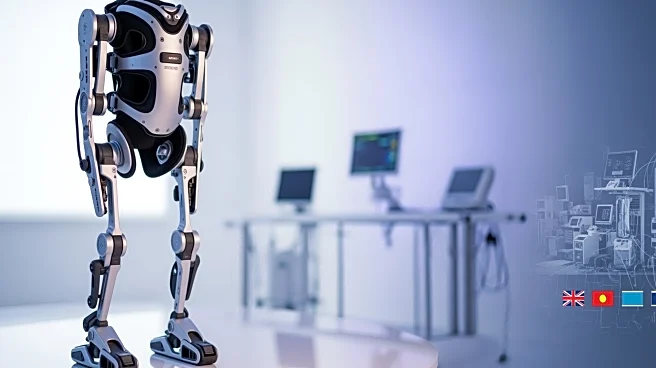What's Happening?
Wandercraft, a leader in self-balancing exoskeleton technology, has received an FDA indication extension for its Atalante X device, allowing its use for patients with spinal cord injuries from levels C4
to L5 and those with multiple sclerosis. This extension broadens the device's application, enabling more patients to benefit from upright, hands-free gait therapy. The Atalante X is designed to assist patients with severe mobility loss, offering joint-specific assistance control and step-length adjustments. This development follows the device's recent CE Mark certification expansion, which included enhanced clinical features for a wider range of neurologic conditions.
Why It's Important?
The FDA's extension for Atalante X marks a significant advancement in neurorehabilitation, providing new opportunities for patients with severe mobility impairments to regain movement. This technology offers a promising solution for individuals with spinal cord injuries and multiple sclerosis, conditions that often lead to long-term disability. By enabling hands-free, self-balancing ambulation, the Atalante X can improve patients' quality of life, offering potential benefits such as improved cardiovascular health and psychological well-being. The device's ability to provide personalized rehabilitation could also reduce the burden on healthcare systems by facilitating more effective and efficient therapy sessions.
What's Next?
With the FDA's approval, Wandercraft is poised to expand the use of Atalante X in rehabilitation centers across the U.S. The company plans to continue refining the device's features and expanding its applications to other conditions. As more data is collected from its use, further improvements and adaptations are expected, potentially leading to broader acceptance and integration into standard rehabilitation practices. Additionally, Wandercraft's ongoing research and development efforts may lead to new innovations in robotic rehabilitation, further enhancing the capabilities of devices like Atalante X.
Beyond the Headlines
The success of Atalante X highlights the potential of robotics and AI in transforming rehabilitation practices. This technology not only offers physical benefits but also represents a shift towards more personalized and adaptive healthcare solutions. However, the integration of such advanced devices into healthcare systems poses challenges, including cost, accessibility, and the need for specialized training for clinicians. As the field of robotic rehabilitation evolves, it will be crucial to address these challenges to ensure that the benefits of such technologies are widely accessible to those in need.









